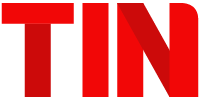In the 2020 TIN Report, Syft Technologies leapt 26 places up the TIN200, from its 2019 rank of 104 to 78, making it the seventh-fastest mover on TIN’s list of the top 200 technology exporting companies. This result followed a strong history of growth for the company, which included Syft taking out the top spot on TIN’s 2019 Supreme Scale-Ups list, which tracks the companies in the Next100 (the companies ranked between 101 – 200 on the TIN200) with the best revenue performance.
In spite of this, it’s not all been smooth sailing for Syft in the year since. The company faced some serious growing pains in 2020, which has resulted in their FY21 revenue dropping from FY20 ($29m vs $31m). After six years of continuous growth and profitability, it was a moment of truth for the company, whose real-time gas analysis technology has nevertheless been increasing in demand from a range of industries, including environmental, biomedical, and automotive sectors.
To steady the ship – and with the goal of taking the company to its next stage of growth – Syft took an important step in March 2021 with the appointment of a new CEO, Alex Fala, who joined the company following several years of successfully leading fintech star company Vend. We asked Alex to share some of the highlights and challenges that he and Syft have faced on their growth journey this year…
 Syft is a trace gas analysis company, which means that we measure what gases are in the air. Traditionally, this could only be done in a lab environment, but Syft’s real-time analysis is a game-changer, which means we can monitor contamination in production of semiconductors or pharmaceuticals or food, or monitor environmental air pollution. I saw the opportunity to build a significant business, and also that there was a lot of room for improvement in the way we execute against that opportunity.
Syft is a trace gas analysis company, which means that we measure what gases are in the air. Traditionally, this could only be done in a lab environment, but Syft’s real-time analysis is a game-changer, which means we can monitor contamination in production of semiconductors or pharmaceuticals or food, or monitor environmental air pollution. I saw the opportunity to build a significant business, and also that there was a lot of room for improvement in the way we execute against that opportunity.We had some issues with the quality of the product that we sold into a large customer. This meant the team had to do a lot of work (without more revenue!) to improve the product and deliver on our promise. They did some amazing work, and the product has now taken a great leap forward in terms of where we were when we first made the sale. I give huge credit to the team for their mahi on that.
COVID impacted our ability to deliver on this because we couldn’t get people to where our customers were to support product upgrades. We are still trying to send people offshore, but the reality is that it’s extremely difficult to secure MIQ spots, and in our view, the Government should be prioritizing these for businesses that are delivering export earnings to the economy.
Beyond the tactical, the growing pains just came from how quickly the company has evolved over the previous years. You need to change a lot about the way you operate as a company as you evolve from ‘families’ to ‘villages’ to ‘towns’ – especially in goal setting, communications, etc. – and things hadn’t quite kept up.
Free TIN Report?
Trend Analysis. Research Tool. Prospecting List.
Become an official member of TIN and receive your copy of the Report at no added cost, plus discounts on exclusive events, opportunities to increase your company's profile, and connect with industry & government leaders.
Share this Post

